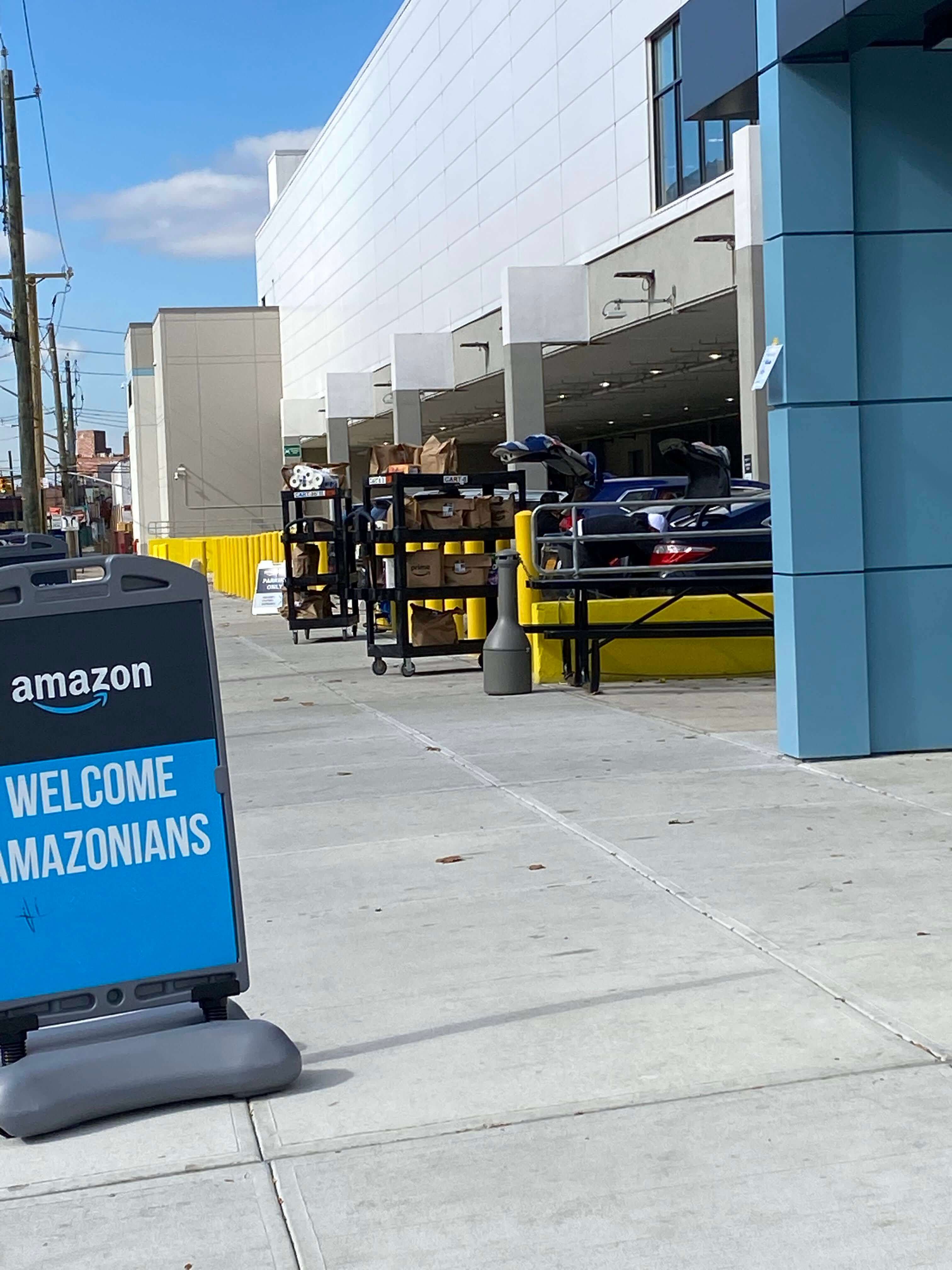It’s been surprisingly difficult to speak with Amazon officials about the large Amazon Flex facility in Red Hook, which is located on Bay St. between Columbia St. and Hicks St.
I was told to get in contact with their corporate office before I could speak to anyone but after a lot of phone calls and messages, I still couldn’t get in contact with the right people so I haven’t been able to speak with any Amazon officials or workers.
I got information from their website, other stories about Amazon Flex, and I spoke to a few of the drivers themselves (they asked to remain anonymous for this story.) The website paints a fairly rosy picture while some of the newspaper articles speak very poorly of the way Amazon treats its drivers. Based on what I heard from the drivers themselves, the truth seems to be somewhere in the middle.
Amazon Flex is basically Uber for delivery drivers. Workers use their own vehicles and once approved, they are notified of delivery opportunities by way of an app.
One of the key points highlighted on Amazon’s website is that most drivers make between $18-25 per hour, while an article from the Seattle Times included quotes from drivers saying they actually made much less money than that. Drivers spoke about losing a lot of that money because they have to pay for gas.
Additionally, many drivers couldn’t work for as many hours as they wanted to because there simply weren’t enough packages for them to deliver.
Some of the drivers work at odd hours to make more deliveries and others talked about having to “constantly rush.” Drivers joked about getting carpal tunnel syndrome from checking the app so many times for work.
“It’s not exactly how it’s advertised but I’m happy to have work,” A driver rold me. “Some days are tough and I’m not able to work as many hours as I want to. That’s the most frustrating thing for me but I was out of work before and I’m grateful to have this job now. I live near here and I don’t mind doing this.”
Another driver said he had the same problem and that he was lucky if he could get six hours of work per day.
“I don’t do this full time and I do this to make some extra money,” she said. “I’m not relying only on this job for my salary so it’s not as tough if there’s a bad day. But at the same time you want to make as much as you can.”
From what I could see, drivers weren’t speeding to make deliveries like some of the drivers in the Seattle Times article had to. The drivers in Red Hook were driving within the speed limit and following all of the traffic rules, which is especially important since the facility is right across the street from a school (BASIS Independent Brooklyn.)
Nobody I saw seemed to be stressed out about getting deliveries done. The people that I met were kind and they were able to take a couple of minutes to talk.
“I didn’t have a lot of opportunities with the pandemic going on and when I heard about this, I gave it a shot,” another driver said. “I was able to get this job when a lot of people I know weren’t working. No job is going to be perfect but there have been more positives than negatives for me.”
Author
-
Founder and editor of the Red Hook Star-Revue. George is also a musician and one-time progressive rock disk jockey, in York, Pennsylvania, also birthplace of Mrs. Don Imus.
View all posts
Founder and editor of the Red Hook Star-Revue. George is also a musician and one-time progressive rock disk jockey, in York, Pennsylvania, also birthplace of Mrs. Don Imus.









